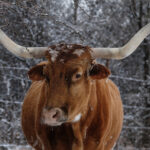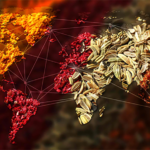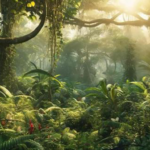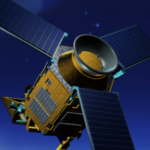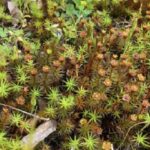Common household products containing nanoparticles – grains of engineered material so miniscule they are invisible to the eye – could be contributing to a new form of indoor air pollution, according to a Rutgers study. In a study published in the journal Science of the Total Environment, a team of Rutgers researchers found people walking through […]
Environmental Sciences
Professor Emeritus of Environmental Sciences William Goldfarb Passes Away
Dr. William Goldfarb, of Pennington, NJ, died on April 10, 2024, at 86. Professor Emeritus of Rutgers University, Cook College, N.J., he is survived by his wife of 41 years, Illse, his daughter Catherine Heacox and his grandson, Griffin Cushing. He is predeceased in death by his father, Herman “Chubbie” Goldfarb, an entertainment lawyer and […]
Alumni Feature: Mamadou Ndiaye (SEBS’19)
Editor’s note: Sections of this SEBS alumni highlight were extracted from the NJ.com article, “He talks about animals and 20 million people listen. Meet N.J.’s viral TikTok zoologist,” written by Amy Kuperinsky. Mamadou Ndiaye graduated with a degree in Environmental Sciences from Rutgers School of Environmental and Biological Sciences (SEBS) in May 2019. When he […]
How Climate Change May Be Affecting the Polar Vortex
In mid-January, we experienced a period of extreme cold, high winds, and a couple of inches of snow, reminding us we are very much in the peak of winter. These blasts of Arctic air and wind are common during New Jersey winters, but is something else happening in the atmosphere? Sitting in the upper troposphere […]
Alumni Feature: Kyle David Reiman (SEBS’22)
Rutgers alumnus Kyle David Reiman graduated from SEBS in August of 2022 with a major in meteorology and two minors in science communication and digital communication, information, and media (DCIM). He is currently a meteorologist and weather producer at FOX Weather and is pursuing his master’s degree in communications at Johns Hopkins University with dual […]
Climate Intervention Technologies May Create Winners and Losers in World Food Supply
Analysis by Rutgers scientists shows future techniques limiting global climate change may create uneven benefits, forcing difficult decisions worldwide. A technology being studied to curb climate change – one that could be put in place in one or two decades if work on the technology began now – would affect food productivity in parts of […]
Climate Change-Induced Drought May Transform Parts of the Amazon’s Rainforests Into Savannas
Professor Ying Fan Reinfelder in the Department of Environmental Sciences is co-author of a Rutgers-led study that indicates future changes, including a reduction to Earth’s ability to store carbon. A portion of Amazonian lowland rainforest – areas critical to absorbing carbon dioxide and buffering climate change – may morph over time into dry, grassy savannas, […]
New Paper by SEBS Faculty Advances Our Understanding of the Links Between Wildfires and Air Quality
Xiaomeng Jin, assistant professor in the Department of Environmental Sciences, is the co-principal investigator of a NOAA-funded study, published in Environmental Science & Technology. The new paper investigates the important air quality impacts of wildfires, and how new satellite instruments can elevate our understanding of those impacts. The new study is supported by the NOAA […]
Lily Young Appointed Board of Governors Professor of Environmental Sciences
Lily Young, an environmental microbiologist at Rutgers for more than 30 years who is recognized for her research to help prevent pollution and restore the environment, has been appointed as a Board of Governors Professor of Environmental Sciences. The Distinguished Professor in the School of Environmental and Biological Sciences focuses her research on anaerobic microbes – organisms […]
SEBS Faculty Mary Whelan Wins Prestigious NSF CAREER Award
Mary Whelan, assistant professor in the Department of Environmental Sciences, won a prestigious CAREER Award from the National Scientific Foundation (NSF) for the project, “Constraining land carbon uptake on regional and global scales by enabling the interpretation of two decades of trace gas measurements.” The five-year, $607,772 award from NSF’s Atmospheric Chemistry division is from […]




